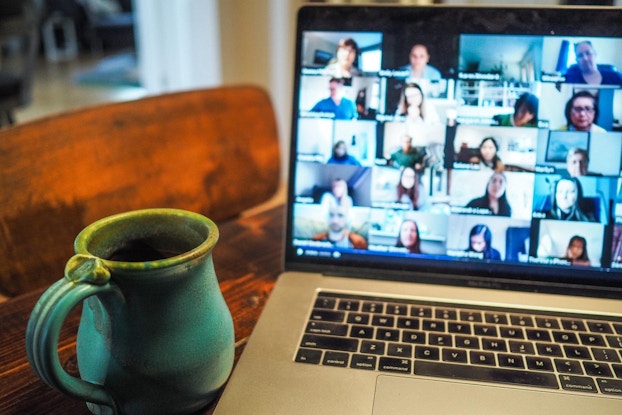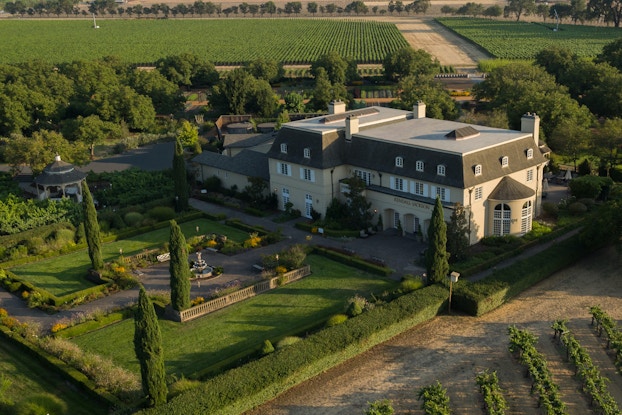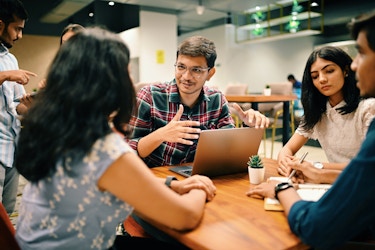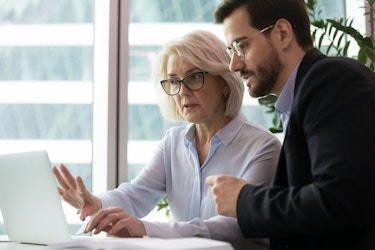
Why it matters:
- Virtual product demonstrations and tasting events have allowed companies to reach consumers directly and encourage trial during the pandemic.
- These events can attract broad audiences, or they can be targeted to specific consumer demographics.
- Digital connectivity through virtual events creates ongoing marketing opportunities for brands through archived content and follow-up communications.
In-person product sampling and demonstrations have long been a key marketing tactic for consumer packaged goods companies, but the practice in its traditional forms came to an abrupt halt when the COVID-19 pandemic hit last year.
Instead, many companies turned to digital strategies. Virtual product samplings, tastings and demonstrations have helped companies including Kraft Heinz Co., Anheuser-Busch InBev and Kendall-Jackson attract new customers, generate buzz and in some cases create platforms for social interaction that consumers have been longing for during the past year.
“The pivot to virtual tastings during COVID-19 will forever change the way wineries move forward with storytelling and consumer relationship building,” said Maggie Curry, vice president of brand marketing at winemaker Kendall-Jackson. “In an instant, ‘Zoom’ became a vocabulary word, and wineries had another tool in the toolbox for creating a new consumer experience.”
Virtual wine-tasting events also paved the way for new partnerships, such as the one that Kendall-Jackson formed with online retailer Wine.com, she said.
Live, from Zoom! It’s cooking classes to wine tastings with John Legend to Sting
Kat Stark, director of Wine.com experiences, said her company has worked with multiple wineries and has conducted more than 100 virtual tasting events centered around several different themes during the past year, attracting thousands of customers.
Wine.com’s director of education, Gwendolyn Osborn, leads the tasting events, and is often joined by the winemakers themselves and sometimes by celebrities who have their own wine businesses, including Francis Ford Coppola, Sting, Sarah Jessica Parker and John Legend.
Wine-tasting events can take a variety of forms, including live cooking classes, wine and cheese education sessions or varietal tastings across multiple wineries, Curry said.
“For Kendall-Jackson, we found out that our consumers and wine club members really like that kind of interactive experience with our winemakers and chefs, so it’s been highly successful,” she said. “We’ll look to continue virtual tastings even when COVID restrictions start getting lifted.”
Many of the strategies that make in-person wine tasting events successful also apply in the virtual world, she explained, noting that presenters should focus on making the gatherings fun, natural and engaging.
“Wine.com lives in the virtual space, and does this really well,” Curry said.
Virtual tastings allow for a multimedia approach to sharing stories and content, such as videos and images. The multimedia dimension is one way to help compensate for the full sensory experience that visitors to Kendall-Jackson Wine Estate & Gardens in California would typically enjoy, she said.
“The gardens are a core component of Kendall-Jackson’s commitment to the very best in food and wine, and that comes through loud and clear when you are in person at the winery,” she said. “It’s a bit more of a challenge to showcase that virtually, so we rely on imagery and video.”
Curry said Kendall-Jackson plans to apply the learnings it has gleaned from its virtual tastings and bring them to its in-person events.
[Here’s a look at in-person businesses that went virtual.]
My advice to wineries is that there is an opportunity to market themselves during the tastings, but also there is an opportunity to connect with people before and after the tastings over email.
Kat Stark, director, Wine.com experiences
Reaching a bigger audience and unearthing new customers
Wine.com, which had not conducted virtual tastings before the pandemic, has found that the events can attract a wide audience from across the country, said Stark. In addition, the company archives the tastings on its website and YouTube channel, which can attract attendees — and potential new customers — long after the live events. Consumers do not have to be customers of Wine.com to attend the events.
"They are completely free, and you don’t have to buy the wine, but we encourage people to, because it’s more fun with wine,” said Stark.
Wine.com begins promoting the wines it has chosen for the tastings a few weeks ahead of time to allow consumers time to purchase the product and make sure they reserve time on their calendars.
The events provide ongoing marketing opportunities for the wine companies that participate.
“My advice to wineries is that there is an opportunity to market themselves during the tastings, but also there is an opportunity to connect with people before and after the tastings over email,” Stark said.
Virtual tastings as corporate events
Another company that has enjoyed success with digital food tastings is Triple Coffee, which markets its virtual coffee sessions to corporations and offers an e-commerce platform for its Central American coffee suppliers.
Founder Tim Melano actually started conducting virtual events in late 2019, shortly before the pandemic began. He had begun inviting friends to in-person coffee tastings in San Francisco, and would ask the coffee producers he sources from to join via Zoom to discuss their product. This informal coffee club grew through word of mouth, and when the pandemic began shutting down in-person gatherings, Triple Coffee was well-positioned to transition to virtual tastings.
The current series of coffee tastings officially kicked off last August, and revenues for the events have been growing an average of 58% per month, a spokesperson for Triple Coffee told CO—.
Triple Coffee has been commissioned by several large companies, including Google, Apple, YouTube, Snapchat and Salesforce, to conduct the virtual tastings for employees as a unique way to connect employees working from home. The events have drawn as many as 500 attendees.
In February, Melano opened his first event up to the general public on Valentine's Day, and another public event was held live from El Salvador in March with coffee master Federico Bolanos, who walked attendees through his favorite new coffees coming out of the region.

Modern day consumer testing: At-home product trial and feedback via mobile app
Another strategy for virtual product sampling that has gained traction during the pandemic involves encouraging consumers to try products at home and report back on their experiences. Several large consumer product companies, including Budweiser parent Anheuser-Busch InBev, global food manufacturer Kraft Heinz Co., and consumer goods giant Procter & Gamble, have all made use of a platform called Digital Demo from Field Agent that pays consumers a nominal fee in exchange for purchasing products, trying them at home and sharing their feedback. Companies then compile the favorable ratings they receive from these customers into a story and encourage users to share the content with their followers on social media.
Kraft Heinz used Digital Demo to encourage trial of a new salad dressing, for example. Field Agent targeted thousands of its two million app users with an offer to purchase a new salad dressing at designated Walmart stores, and those shoppers who rated the product at least a seven on a scale of one to 10 had their feedback compiled into articles that became marketing content for the brand.
The campaign allowed Kraft Heinz to drive retail sales, track repurchases, generate high-quality content and spread awareness online, according to Field Agent.
[Read here on how to move from in-person to online sales.]
Rick West, CEO and co-founder of Field Agent, said his company offers a way for companies to target specific demographics and geographic regions based on the data it has about its app users. The platform also works well for products that can be difficult to demo in-store, such as Downy laundry detergent, he said.
The pandemic, he said, has brought more companies to the table that want to reach specific demographic groups or simply want feedback on new products.
Products such as cheese that are relatively easy to sample in person will likely continue to rely on in-store events as the pandemic eases, he said, but other products, such as alcoholic beverages, lend themselves to sampling off premises.
Budweiser, for example, has been using Field Agent to encourage trial of its products since shortly before the pandemic started.
“Budweiser came to us with a new seltzer and said they would love to have influential people in a specific demographic come and purchase it, and tell us what they think,” said West. “We’re now driving with them down that road.”
Research from McKinsey & Co. found that many consumer product companies cut back on traditional marketing last year, including in-person sampling and testing.
“Media consumption has shifted to digital even further than in the preceding decade,” the company said in a report.
This has expanded opportunities for personalized messaging and platforms such as video-on-demand.
“Speaking to customers through their preferred channels and addressing their current needs—with the right tone, language, and brand promise—will be critical to success in the next normal,” the report concluded.
CO— aims to bring you inspiration from leading respected experts. However, before making any business decision, you should consult a professional who can advise you based on your individual situation.
Follow us on Instagram for more expert tips & business owners stories.
CO—is committed to helping you start, run and grow your small business. Learn more about the benefits of small business membership in the U.S. Chamber of Commerce, here.








